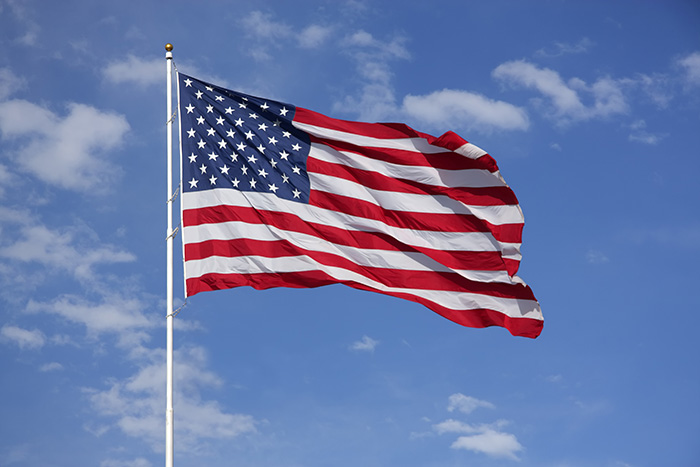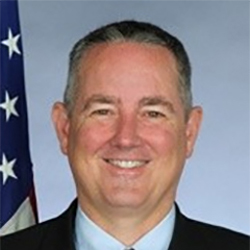Analyses / Political and Geostrategic Observatory of the United States
16 June 2025
The State of American Politics, Without Mentioning « Donald Trump »

In 1969, Georges Perec published a remarkable novel, La Disparition. He wrote it without once using the letter “e” — or its accented variants, “é” and “è” — hence the title of the work.
Yet “e” is the most common letter in the French language. As one might imagine, it was an extremely difficult exercise — one Perec nonetheless accomplished with brilliance. Today, I would like to attempt a performance of comparable rigour: to write an analysis of contemporary American politics without mentioning a certain name. But I wonder if my task might be even more difficult. One man has so thoroughly dominated the news in the United States that it seems almost impossible to think about the present — let alone the future — without referring to him. I shall give it a try. After all, that individual may be no more than a symptom — or a catalyst — of much deeper transformations currently unfolding across the Atlantic.
Americans appear to have lost their optimism. Historically, this wealthy nation with a 250-year-old democracy inspired confidence and pride in its citizens. That seems increasingly less the case today. For years, profound economic and social upheavals have undermined the belief that the future will be more prosperous for coming generations. In a 2023 survey conducted by The Wall Street Journal and the National Opinion Research Center (NORC), 78% of Americans responded negatively to the question: “Are you confident or not that life for the next generation will be better than what you’ve experienced?” Such pessimism is surprising in a people traditionally known for their entrepreneurial spirit.
This pervasive negativity translates into deep disillusionment with democratic institutions. According to a spring 2024 study by the Pew Research Center, only 22% of American adults said they trusted the federal government “always” or “most of the time.” This loss of trust extends to virtually all pillars of a healthy democracy: the legislature, the courts, the media, political parties, and the education system. In such a context, it becomes easier to understand voters’ passivity — or even enthusiasm — in the face of repeated assaults on democratic institutions and norms. If one believes everything is corrupt or dysfunctional, then it hardly matters whether the president ignores court orders, deports immigrants without due process, dismantles federal agencies without Congressional approval, fires thousands of civil servants without legal authority, strips funding from universities whose political or social views differ from his own, or deploys troops to police the border despite explicit prohibitions on using the military for domestic law enforcement. Some even applaud it.
This disillusionment is exacerbated by the fact that, on both sides, political parties rely on fear to mobilise voters. To motivate an electorate, a leader has two options: hope or fear. Either they propose an ambitious vision of national transformation — as during the American Revolution in the 18th century, or the civil rights movement in the 1960s — or they incite fear. Today — strikingly — it is the latter approach that prevails. On one side, there are claims that the country is being overwhelmed by immigrants, that the economy has been outsourced to China and Mexico, and that “wokeness” threatens to destroy traditional “Judeo-Christian” culture. On the other side, we hear — perhaps not unjustifiably — that America stands on the brink of dictatorship, and that political opponents are extremists who will lead the country to ruin. No compromise is possible.
Americans are thus deeply divided. It is now commonplace to say that the United States is “more divided than at any time since the Civil War.” That war, let us recall, was the deadliest in American history, with over 600,000 deaths. The Pew Research Center notes that the word most commonly used in its recent surveys to describe American politics is divisive. Two-thirds of Americans say they feel “angry” when thinking about politics. And those most politically engaged are also the most “exhausted” and “outraged.” Nearly half of the American electorate believes that members of the opposing party are not just wrong, but actually evil, according to polling data from the SNF Agora Institute at Johns Hopkins University. A particularly telling anecdote: in the presidential order mobilising the National Guard to respond to security concerns in California this week — with each unit normally made up of reservists from the same state, under their governor’s authority — Washington failed to specify which units would be sent to protect federal personnel and buildings from “rioters.” Some media outlets speculated that the president was reserving the right to deploy units from more Republican-leaning states — such as Mississippi or Montana — where troops might be culturally more hostile to protesters than their Californian counterparts. Even security has become partisan.
On the international stage, the changes are equally significant. The average American may not closely follow foreign policy, but for a long time they subscribed to the idea that the United States was destined to play a leading role in the world — particularly because of its democratic values. Its wealth, combined with its supposed wisdom, conferred upon America both the right and the duty to lead globally. That belief still exists among part of the electorate, but it is far less entrenched in the national psyche than in the past. In 2024, the Chicago Council on Global Affairs found that “fewer than six in ten Americans believe the United States should play an active part in world affairs… one of the lowest levels recorded since this question was first asked in 1974.” This shift towards isolationism is particularly marked among Republicans — all the more striking given the party’s traditional support for an assertive foreign policy. In this context, a US withdrawal from the North Atlantic Treaty Organisation, or an abandonment of Ukraine in the face of Russian aggression, now seem far more plausible than they would have in the past. Moreover, while Americans still broadly support the principle of free trade, more and more express approval of a form of nationalist protectionism. A few years ago, 145% tariffs imposed on a trade partner would have seemed unthinkable. That is no longer the case.
In short, for a multitude of reasons, America today is far more receptive to spectacular political upheavals than it once was.
Donald Trump has played a major role in this transformation, but he is not its ultimate cause. With him — or someone else — the United States has now been transformed. And nothing seems likely to turn back the clock.
Darn! I clearly lack Georges Perec’s discipline.
Find regular editorials from Jeff Hawkins, former American diplomat and associate fellow at IRIS, in his Dispatches from a State Department Veteran.

